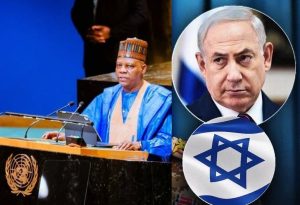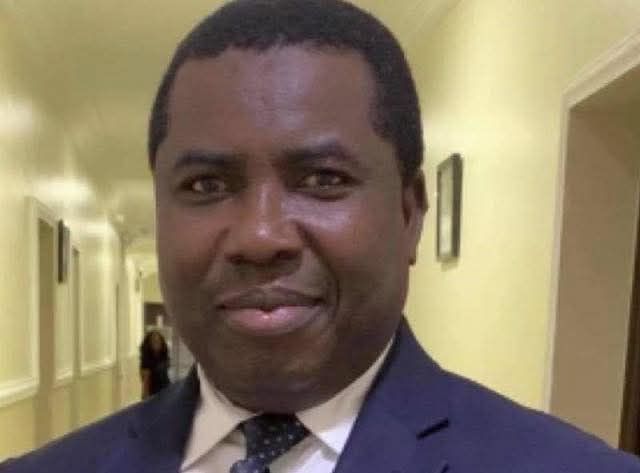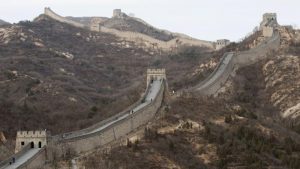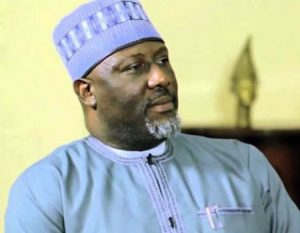George Orwell, in his seminal novel ‘1984’, predicted a communist dystopia. China might have found a way around his prophetic doom. Solomon Elusoji writes:
In 1941, Adolf Hitler set his eyes on Moscow, then the capital city of the USSR. Historians generally believe that had Hitler succeeded, the story of World War 2 would have been very different, red instead of green. There’s a story that during this period, when public power supply was epileptic due to the destructive antics of the Germans and power was heavily rationed, the lights in Joseph Stalin’s office had to be left on all night, whether he was there or not. The rationale was that everyone had to ‘know’ that Stalin was constantly working to keep the people safe, even while they slept. It was not uncommon for people to bring their petrified children downtown to see the one window in the Kremlin with the lights on.
The Stalin lights are a kind of metaphor for the nature of facts, and how their fluttering incandescence can be used as tools to shape and reshape the mould of history, whether for God, gold, or glory. In George Orwell’s ‘1984’, this practical revisionism was one of Big Brother’s major tool kit in asserting his authority over Oceania, a totalitarian state where the ruling party wielded total power over the lives of its peoples. He “who controls the past controls the future,” Orwell wrote. “Who controls the present controls the past.”
This reporter read 1984 at 15, as a recommended text for an entrance examination into the university. The prose was bleak, hopeless and utterly depressing. He can still remember sitting on a stool in a dingy room, thumbing through the last pages, mentally parsing through a text riddled with images of a humiliated, mutilated Winston Smith who, in the end, loved Big Brother.
There are lots of Big Brothers in the world: forces that strive to assert dominance over other forces and set up control stations. But Orwell’s Big Brother is a Communist Party leader, a caricature of, most likely, Joseph Stalin, who was unarguably the face of communism in 1948 when the book was published in Europe. This Big Brother is vicious, never hesitant to physically invade the physical body to infiltrate the mind. He is also omniscient: he knows the thoughts in your hearts and nothing is hidden from him. It does not matter who you are or where you go, Big Brother’s eyes are trained on you, always watching.
But the creepiest fact about Orwell’s Big Brother is his ambition: to create a race of men totally devoted to the ideals and cause of the party and to extinguish those who refuse the Party a place in their hearts. Besides, Big Brother’s idea of devotion is not just mechanical or routine, it has to be genuine, a spring of fresh love that renews itself every morning and never runs dry.
It is difficult to estimate the impacts books like 1984 – books that imagine the end of personal freedom – had on post-World War 2 Europe but they definitely laid the foundation for the West’s fear of Big Brothers, building on blocks laid by the French Revolution, the American Constitution and political theorists like John Locke and Montesquieu. The Korea and Vietnam wars were mostly struggles to either prevent or enthrone a kind of Big Brother and the cold war, at least from the American viewpoint, was a war against the forces of darkness. Big Brother was a slimy, devilish creature conjured from the pit of hell to condemn the world to a dystopia, a place where there was no laughter, no love, no light, only the Party.
In many ways, the campaign against Big Brother was a success, at least on the surface. The fall of the Berlin wall, the reunification of Germany and the breakup of the USSR had several historians touting “the end of history”. But, perhaps, they were too short sighted. To the East, an ancient kingdom which had been humiliated by Western powers in the 19th century was picking up the fragmented pieces and reconstructing a dazzling vision of its former greatness, all this under the guidance of Marxim-Lennism, a political and economic philosophy, if Orwell is to be believed, that very much suits the rise of Big Brothers.
An economic miracle
One night this February, I touched down at Beijing Capital International Airport, courtesy of the China Africa Press Centre. The temperature was freezing but, fortunately, I had a thick coat on as I trudged along smooth surfaces, dealing with immigration, boarding a shuttle train and picking out my luggage from a grounded rollercoaster. Outside, Beijing was resplendent, with lights under the night sky illuminating tree-lined roads and ubiquitous sky-scrapers. The next morning, I went out looking for breakfast and ended up at a small Italian restaurant across. The restaurateur, a beefy, amiable middle-aged man, told me his name was Pascalino from Genoa. The pizza was good.
Beijing is the most populous capital city in the world but you cannot know that by observing its beautiful road network, which is heavily supported by a fleet of bicycle riders along the sidewalk. The subway, too, works and there are no shortage of mesmerised, tourists gawking, camera in hand, at its expansive, glorious scenery. Although less flamboyant than commercial centres like Shanghai and Hong Kong, the transformation of Beijing from an ancient capital to a modern one is one of the finest marks of China’s meteoric rise since the 1970s.
When the Communist Party came to power in 1949, China was a fragmented nation, bruised from the many blows and uppercuts it had suffered from Western and Japanese imperialism since the advent of the 19th century. But the Communists were determined to unite the nation and they promised nothing short of a return to the country’s historic glory. But, at first, things did not go as planned. The leader of the Communist Party and leader of New China, Mao Zedong, fondly referred to as Chairman Mao, was a charismatic, firebrand revolutionary who was totally committed to the lessons of Marx and Lenin and sought to underpin the nation’s transformation on their teachings. Although he would lay the foundation for what would later become one of the most amazing economic miracles in human history, he made many mistakes.
One of such was his Great Leap Forward mandate, an agricultural and technological programme that was not based on science and led to a terrible famine in rural China that led to the death of millions in the 1950s. Historians, also, fault his cultural revolution, a campaign that nearly destroyed China’s cultural and religious heritage. When Mao died in 1976, the Communist Party started to rethink many of his policies. In December 1978, China’s new leader, Deng Xiaoping, announced the Open Door Policy, a reform which opened the door to foreign businesses that wanted to set up in China. And, gradually, the party loosened its grip on the economy, allowing the principles of capitalism to provide nourishment while strengthening its grip on politics.
“China crammed into 30 years the kind of brutish, uplifting makeover that took as long as a century in the industrial revolutions in the UK and the U.S.,” Richard McGregor says, in his breathtaking book ‘The Party’. Since 1978, “the economy has doubled in size every eight years. In a comparatively short space of time, the Party has presided over an epic migration of farmers from the countryside to the cities; an explosion in private ownership – of houses, cars, businesses and shares; the creation of a middle class twice the size of the population of the United Kingdom; and lifting out of poverty of hundreds of millions of people.
In the last decade, China has managed to gallop or drag itself through multiple calamities: the Asian financial crises in 1997 and 1998; the downturns in the U.S. in the wake of the bursting of the internet bubble and the downturns in the U.S. in the wake of the September 11 terrorist attack; and the homegrown SARS emergency in 2003, which threatened to bring businesses inside the country to a halt. When the credit crunch hit the global economy in 2008, China was better equipped than just about anywhere in the world to handle the sudden downturn.”
When a friend asked me what I was doing in Beijing, I referred him to the above paragraph and said, “I want to understand how they did it.”
The value of bread
The ‘how’ to China’s turnaround can be simply summarised down to the realisation that the ‘Soviet Central Planning’ was a terrible way to run a modern economy. Simple answers, of course, never tell the full story. However, what has puzzled many China ‘watchers’ more, especially those from the West, is how China has been able to remain communist as it grows richer and more of its citizens become prosperous. The assumption is that a burgeoning middle class will inevitably lead to heightened calls for Western-style democracy. Western experts point to the 1989 Tiananmen Massacre and the Party’s vicious crackdown on the Falun Gong sect in the early 2000s as examples of how and why a democratic revolution is imminent in modern China. All these punditing, of course, are based on the premise that dictatorial communism and socialism are inherently flawed as political method of governing a modern society.
On the surface, the argument appears to have some merits. China is a nation with a leadership that bears close resemblance to Orwell’s Big Brother. Its political life continues to be tightly regulated by the Party, stifling debate. This February, after the Party proposed removing a clause in the constitution that allows President Xi Jinping to extend his stay in power beyond the end of his second term in 2023, several key terms on the Chinese internet were censored. On Sina Weibo, China’s equivalent of Twitter, censored phrases included: ‘I don’t agree’, ‘migration’, ‘emigration’, ‘re-election’, ‘election term’, ‘constitution amendment’, ‘constitution rules’, ‘proclaiming oneself an emperor’, and ‘Winnie the Pooh’, a nickname that social media users have coined for President Xi, which is often used in derogatory terms. According to the BBC, the comments remaining on the popular Sina Weibo microblog are “mostly monosyllabic statements from users simply saying they ‘like’ or ‘approve’ the amendments.”
But the Party tends to defend its position on censorship by noting that democracy should be developed in stages. “Real democracy does not come in the form of absolutes,” President Xi has said. “It is subject to specific constraints. At the same time, democracy develops in stages and cannot be rushed. The way we cultivate the quality and management of our democracy must also follow specific stages . . . without stability and unity, nothing else matters.”
This, too, has merit. One should never forget that while Western democracies lampoon China for limiting and dissuading freedom of expression, their governments continue to hunt down maverick expressionists such as Edward Snowden and Julian Assange. Besides, the French Revolution did not happen because people were tongue-tied but because they could not buy bread amid reckless spending by a corrupt monarchy. If the Communist Party has delivered economic gains to millions of its citizens, with solid plans to lift millions more out of poverty within the next few years, why should it allow its citizens revolt?
“Do you live on democracy?” a young Chinese professional, Liu Yang, once asked American journalist, Evan Osnos, in the latter’s book ‘Age of Ambition’. “You eat bread, you drink coffee. All these are not brought by democracy. Indian guys have democracy, and some African countries have democracy, but they can’t feed their own people. Chinese people have begun to think, ‘one part is the good life, another part is democracy. If democracy can really give the good life, that’s good. But without democracy, if we can still have the good life, why should we choose democracy?”
The importance of China
I was raised on the political conviction that democracy is the ideal form of governance. I still hold that as true. But democracy is built on certain assumptions: one, that people have the opportunity to receive similar quality of education and two, that they have the necessary mental stability and information to make reasonable choices. “Democracy cannot succeed unless those who express their choices are prepared to choose wisely,” former American President Franklin Delano Roosevelt once said. “The real safeguard of democracy, therefore, is education.”
So, the question goes: why allow people vote, when they cannot be trusted to make reasonable decisions? The answer should be simple if there is an agreement on who or what decides what is a “reasonable decision”. Is the decision of millions of white Americans to vote Donald Trump reasonable because he speaks to them the sweet things they yearn to hear? And how sensible is Brexit, if the vast majority of those who voted for it were older, lower paid, less educated and less politically informed folks? There are, of course, no easy answers, but it is important to seriously evaluate the idea that ‘one man, one vote’ pushes society towards progress or simply an illusion, a kind of veil.
This is why China is important. True, the country’s human rights record is not exactly appealing, its industrial aggression has and will create several environmental problems, it is one of the most economically unequal places on earth and public corruption remains a cancer. But these problems are not unique to it and do not overshadow the progress it has made within such a short time. More importantly, China has shown the world that “the Western Model is not the only way to modernise,” The ‘Global Times’, a Chinese nationalistic tabloid once wrote. “China has also demonstrated that the non-Western world does not necessarily follow the West’s footsteps.”
This kind of ‘option’ is a good thing for modern politics, especially for struggling African democracies who are bent on copying Western democracies like for like without giving critical thought to the peculiarities of governance in their individual societies. If a Big Brother system can be used to light up the path towards paradise, then states must learn to rethink many of their assumptions about good and evil.
Do you have a hot story or scandal you would like us to publish, please reach us through toktok9ja@gmail.com or WhatsApp: +2348033498347
ATTENTION! ATTENTION!! ATTENTION!!! ADVERTISE ON TOKTOK9JA AND REACH OUT TO YOUR DESIRED AUDIENCE: HERE

























